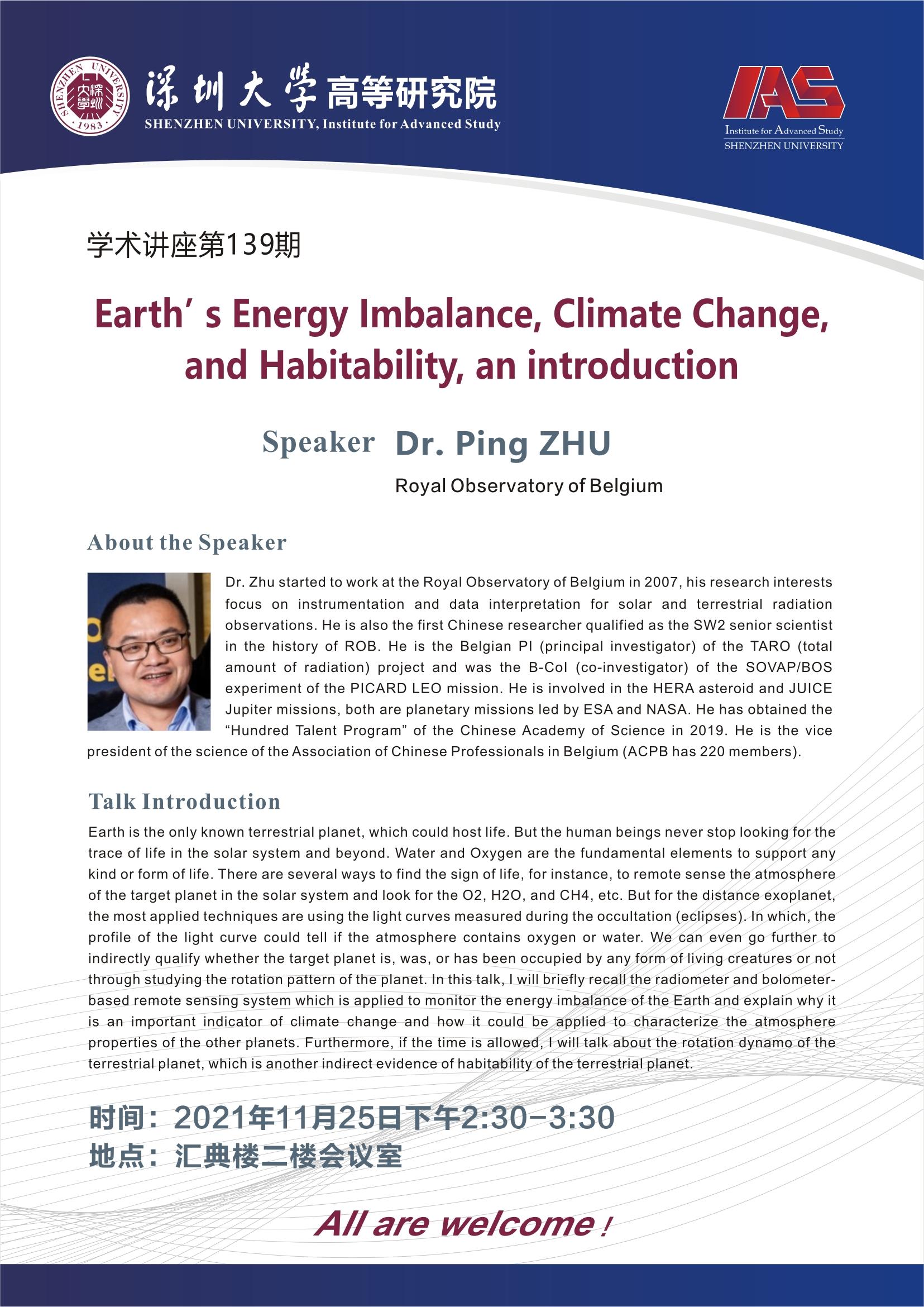Earth’s Energy Imbalance, Climate Change, and Habitability, an introduction
Speaker Dr. Ping ZHU
Royal Observatory of Belgium
About the Speaker
Dr. Zhu started to work at the Royal Observatory of Belgium in 2007, his research interests focus on instrumentation and data interpretation for solar and terrestrial radiation observations. He is also the first Chinese researcher qualified as the SW2 senior scientist in the history of ROB. He is the Belgian PI (principal investigator) of the TARO (total amount of radiation) project and was the B-CoI (co-investigator) of the SOVAP/BOS experiment of the PICARD LEO mission. He is involved in the HERA asteroid and JUICE Jupiter missions, both are planetary missions led by ESA and NASA. He has obtained the “Hundred Talent Program” of the Chinese Academy of Science in 2019. He is the vice president of the science of the Association of Chinese Professionals in Belgium (ACPB has 220 members).
Talk Introduction
Earth is the only known terrestrial planet, which could host life. But the human beings never stop looking for the trace of life in the solar system and beyond. Water and Oxygen are the fundamental elements to support any kind or form of life. There are several ways to find the sign of life, for instance, to remote sense the atmosphere of the target planet in the solar system and look for the O2, H2O, and CH4, etc. But for the distance exoplanet, the most applied techniques are using the light curves measured during the occultation (eclipses). In which, the profile of the light curve could tell if the atmosphere contains oxygen or water. We can even go further to indirectly qualify whether the target planet is, was, or has been occupied by any form of living creatures or not through studying the rotation pattern of the planet. In this talk, I will briefly recall the radiometer and bolometer-based remote sensing system which is applied to monitor the energy imbalance of the Earth and explain why it is an important indicator of climate change and how it could be applied to characterize the atmosphere properties of the other planets. Furthermore, if the time is allowed, I will talk about the rotation dynamo of the terrestrial planet, which is another indirect evidence of habitability of the terrestrial planet.
时间:2021年11月25日下午2:30-3:30
地点:汇典楼二楼会议室
All are welcome!



